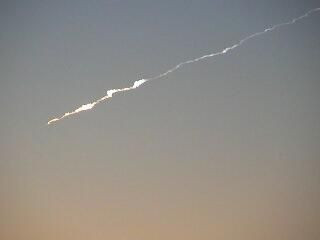Hundreds of meteors will race the skies in the morning of Nov. 22. Dubbed as the Unicorn meteor shower, this phenomenon occurs every year between Nov. 21 and Nov. 23.
The Unicorn meteor shower is more commonly known as the alpha Monocerotid meteor shower. This rare event illuminates the sky with usually just a couple of meteors and appears in the night sky near the Unicorn constellation Monoceros, hence its unofficial name “Unicorn.”
According to experts, the Unicorn meteor shower is not like most meteor outbursts that last for several hours. Strong activity from this meteor shower only lasts within an hour and night sky viewers easily miss it because it consists of just a bumper crop of meteors.
Meteors that arrive during the Unicorn meteor shower come from a dust trail of a mysterious comet that has existed for a long time. The comet, which takes more than two centuries to travel around the sun, leaves a trail of dust that gets particularly close to the orbit of the Earth.
The bonanza of meteors created by this trail of dust appears in the night sky every year, but it depends on the condition of the sky whether night sky viewers will catch a good glimpse of them or not. According to NASA researcher Dr. Peter Jenniskens and Finnish Fireball Network researcher Esko Lyytinen, the conditions of the night sky of Nov. 22 this year are just right for night sky viewers to witness the arrival of meteors near the Unicorn constellation.
NASA also explained that since the dust trail will linger for a while near the orbit of our planet, people can expect the outbursts of meteors to still arrive every year in the next few centuries. In the last few decades, the only years that the Unicorn meteor shower was able to create a spectacular display were in 1925, 1935, 1985, and 1995. According to Dr. Jenniskens and Mr. Lyytinen, this year’s comet trail will most likely create a meteor shower similar to the one people witnessed in 1995. This year’s shower will reportedly last up to 40 minutes, but the peak of the outburst will last for around 15 minutes.

© 2025 Latin Times. All rights reserved. Do not reproduce without permission.




